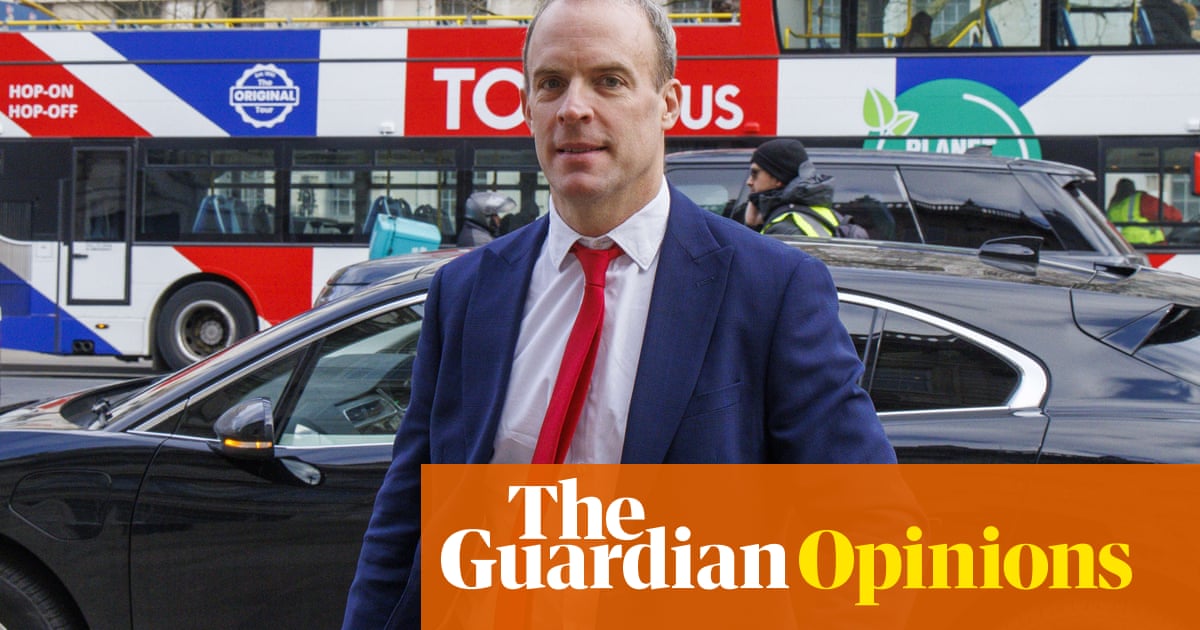
Britain’s abysmal level of statutory sick pay is a killer. If you are even eligible – and all too many low-paid, insecure and zero-hour contract workers are not – then you can expect to receive a derisory £96.35 a week, lower than almost every other western nation.
With in-work poverty at a record high, the country’s low-paid workers (who are less likely to work remotely) face an impossible choice: they can ignore a sniffle and a temperature, or risk a test that could lead them to isolate and forgo their full wages. And so Covid rips through our workplaces, transport systems and the wider community. The result is more illness – damaging the economy and further overloading an overwhelmed NHS – and, most seriously of all, more death.
The government’s incompetent handling of the pandemic serves to furnish the case for a Labour government, but we cannot wait until the next election for Keir Starmer to act. Boris Johnson’s 80-strong majority, which had previously allowed him to pass legislation unopposed, has now been weakened by the rebels in his own party. The prime minister is now reliant on the votes of Labour MPs, and with Starmer’s position strengthened the Labour leader can use his whipping operation to push the government for concessions, such as a hike in statutory sick pay.
Protecting the health of the public is not the same as “playing politics”. In his national televised address, Starmer need not have departed from a statesmanlike tone by declaring that Johnson’s measures do not go far enough to protect the public. After all, leaked analysis from the government’s Covid-19 taskforce suggested that vaccine passports may reduce overall community transmission by just 1-5%.
We clapped our key workers from our doorsteps, Starmer could have added, but their health remains imperilled, and that threatens the health of the wider community, too. A weak Conservative government was unable to take decisive measures to protect the safety of its own people – and so it must fall to Labour to offer the leadership that was desperately missing, could have been his compelling concluding remarks.
Other measures to save lives and livelihoods could have been demanded, too, ahead of last night’s vote. The lack of ventilation in schools and workplaces allows the virus to run rampant: Labour could have requested an emergency programme to rectify it. The International Monetary Fund this week announced that Britain may need to introduce some form of furlough if shutdowns are required: here Labour could at least have demanded a commitment, including to revive support for the self-employed. People need financial security to self-isolate, and there will be ruinous consequences for both living standards and the economy unless the Treasury flicks the life-support machine back on.
This is not playing politics, it is doing politics. An opposition party that succeeds in using its leverage to extract concessions from a government to safeguard the wellbeing of the population has played a blinder. If the Tories refused such measures, they would have to explain why, for example, they do not believe statutory sick pay should be raised to the level of other wealthy nations to grant often critically important workers financial security to self-isolate and slow the remorseless march of Omicron.
Labour could have rightly said the current package will not succeed and more radical solutions are needed to prevent renewed national calamity. It would help solve another problem, too: throughout the pandemic, both Labour and Tory focus groups report voters complaining that the opposition carps from the sidelines without explaining what it would do instead. By putting further policies in place, Starmer looks like a proactive leader, unlike his reactive counterpart.
Here is an opportunity for Starmer to change the political narrative that has kept Labour out of power for decades. After the financial crash, Britain’s Tories swiftly rewrote history to claim Labour’s lavish spending had led the country to economic ruin, laying the political foundations to impose slash and burn cuts. A Labour message that economic insecurity is itself a petri dish for the virus could resonate precisely because it speaks to the facts. Unlike the Tory narrative, the fact that the party spent a decade taking a sledgehammer to the state, leaving Britain exposed to the pandemic, happens to be true.
This could be a breakthrough moment for Labour. Johnson himself has lost the confidence of much of his parliamentary party, and his premiership is in a parlous state. Starmer is in a uniquely advantageous position to demand measures that would objectively save lives and prevent crippling hardship. The failure to do so, thus far, comes with a terrible price.
Owen Jones is a Guardian columnist












